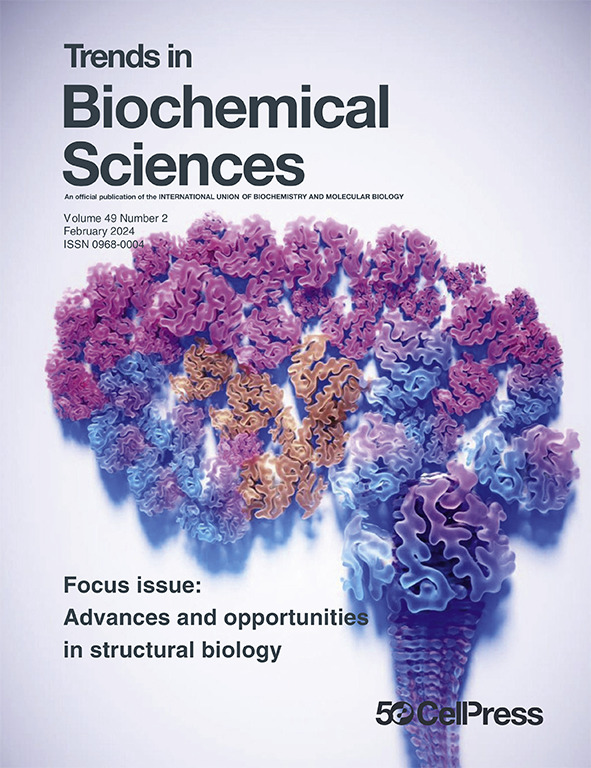A two-way relationship between histone acetylation and metabolism
IF 11.6
1区 生物学
Q1 BIOCHEMISTRY & MOLECULAR BIOLOGY
引用次数: 0
Abstract
A link between epigenetics and metabolism was initially recognized because the cellular metabolic state is communicated to the genome through the concentration of intermediary metabolites that are cofactors of chromatin-modifying enzymes. Recently, an additional interaction was postulated due to the capacity of the epigenome to store substantial amounts of metabolites that could become available again to cellular metabolite pools. Here, we focus on histone acetylation and review recent evidence illustrating this reciprocal relationship: in one direction, signaling-induced acetyl-coenzyme A (acetyl-CoA) changes influence histone acetylation levels to regulate genomic functions, and in the opposite direction histone acetylation acts as an acetate reservoir to directly affect downstream acetyl-CoA-mediated metabolism. This review highlights the current understanding, experimental challenges, and future perspectives of this bidirectional interplay.
组蛋白乙酰化与新陈代谢之间的双向关系
人们最初认识到表观遗传学与新陈代谢之间的联系,因为细胞的新陈代谢状态是通过作为染色质修饰酶辅助因子的中间代谢物的浓度传递给基因组的。最近,由于表观基因组能够储存大量代谢物,而这些代谢物又可以重新进入细胞代谢物池,因此又推测出了另一种相互作用。在此,我们将重点关注组蛋白乙酰化,并综述了说明这种相互关系的最新证据:在一个方向上,信号诱导的乙酰辅酶 A(乙酰-CoA)变化会影响组蛋白乙酰化水平,从而调节基因组功能;而在另一个相反的方向上,组蛋白乙酰化则充当乙酸盐库,直接影响下游乙酰-CoA 介导的新陈代谢。这篇综述重点介绍了目前对这种双向相互作用的理解、实验挑战和未来展望。
本文章由计算机程序翻译,如有差异,请以英文原文为准。
求助全文
约1分钟内获得全文
求助全文
来源期刊

Trends in Biochemical Sciences
生物-生化与分子生物学
CiteScore
22.90
自引率
0.70%
发文量
148
审稿时长
6-12 weeks
期刊介绍:
For over 40 years, Trends in Biochemical Sciences (TIBS) has been a leading publication keeping readers informed about recent advances in all areas of biochemistry and molecular biology. Through monthly, peer-reviewed issues, TIBS covers a wide range of topics, from traditional subjects like protein structure and function to emerging areas in signaling and metabolism. Articles are curated by the Editor and authored by top researchers in their fields, with a focus on moving beyond simple literature summaries to providing novel insights and perspectives. Each issue primarily features concise and timely Reviews and Opinions, supplemented by shorter articles including Spotlights, Forums, and Technology of the Month, as well as impactful pieces like Science & Society and Scientific Life articles.
 求助内容:
求助内容: 应助结果提醒方式:
应助结果提醒方式:


